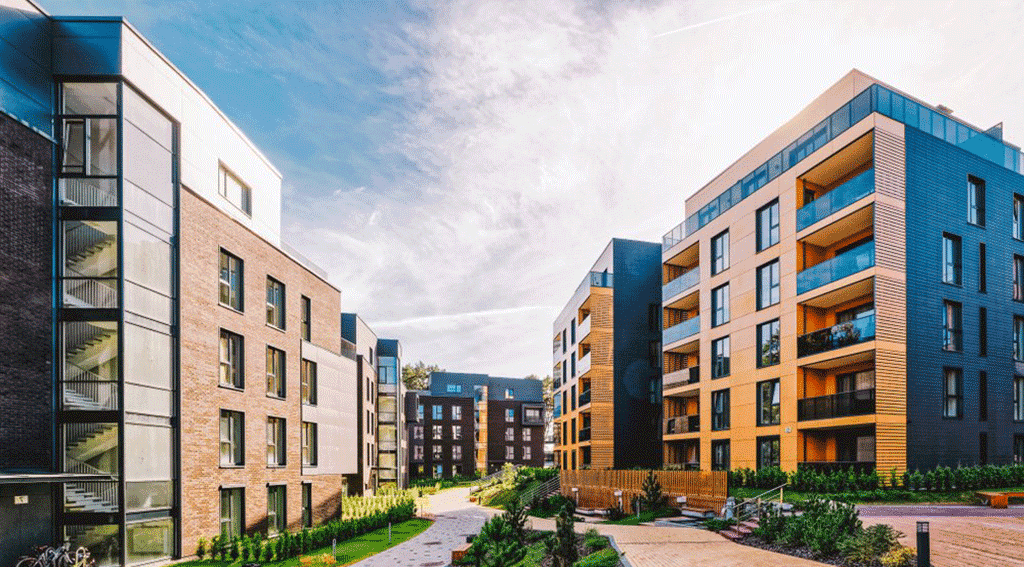A Guide for Purchasing a Condominium in Thailand for Foreign Investors
Thailand, the land of smiles, is a country rich in culture and history. Seeking glowing white sand, clear blue water, islands, jungles, neon nightlife, and delicious street food, millions of people visit Thailand each year to experience a culture, unlike anything we find in the west.
Visitors come for a day and stay for a lifetime. Once they get a taste of “Thai life”, they are drawn back year after year. Thailand is easy to get to from almost anywhere in the world and depending on how well you budget, a week-long holiday here is cheaper than a week’s vacation in many popular western destinations.
Some people see Thailand as somewhere to move and live permanently. Remote workers, families, young travelers, and retirees will settle up back home and relocate to enjoy this paradise for the long term. For those looking to move or set up a permanent holiday destination, buying a condominium in Thailand is appealing. This article will show you how.
The word through the grapevine is that buying property in Thailand is a minefield to navigate. Though more complex for foreigners, a lot of what you hear is misinformation. If you do your research and enlist the help of a good property lawyer and real estate agent, your buying journey will be straightforward.
Buying a condominium in Thailand is the easiest and most secure form of property ownership for foreigners, so that is our focus in this guide. We will give you an overview of property types and legal ownership rights (titles) before diving into what to look for and how to buy. We will highlight the importance of legal advice and its necessity in your buying journey.
At the end of this article, whether you are a seasoned investor, or buying your first Thai condominium, you will understand how it works and who can help. You will enter the Thai property market with confidence.
Who can buy a condominium in Thailand under foreign law?
Foreigners and juristic persons regarded by law as foreign may hold ownership of a condominium unit if they fall under the following:
- Foreigners are permitted to have residence in the Kingdom under immigration laws;
- Foreigners are permitted to enter the Kingdom under the investment promotion law;
- Juristic persons registered under Thai law;
- Juristic persons which obtained a promotion certificate under the investment promotion law; and
- Foreigners or juristic persons are regarded by law as aliens who have brought in foreign currency into the Kingdom or withdrawn money from the Thai baht account of the person who has a residence outside the Kingdom or has withdrawn money from a foreign currency account.
Basically, if you enter Thailand under a valid immigration visa and do not have a criminal record in the country, you can look to purchase property.
The last point is most relevant for potential investors. As a foreigner, you are investing in the country, so all money used to buy property must come from outside Thailand. There must be a clear paper trail of where the funds are coming from and how they will be used once in Thailand. We will explain this further in the buying process.
Legal property ownership in Thailand
In Thailand, there are three ways a foreigner can own property – Freehold, Leasehold, or Thai Limited Company.
Freehold – Foreigners can hold a freehold title in their own name. The Thai Land Office issues a title deed similar to a strata title and freehold property can be used as collateral in Thailand.
Condominiums are the only form of property a foreigner can own as a freehold. So it is a popular buying choice, and the easiest to obtain.
Leasehold – A foreigner can own a physical structure (property) as a Superficie or Usufruct entity, but the land it rests on is owned by a Thai national or Thai Limited company.
You can lease the ‘land’ for up to 30 years, with a possibility to extend it for up to 90 years.
The lease is registered with the Thai Land Office and if sold during this term, the new land owner takes over the existing lease.
During the term of the lease, you are responsible for maintaining the land and all structures.
Thai Limited Company – Land and structures can be owned through a Thai Limited company.
A foreigner can be a shareholder in the company, but the company must have at least two Thai National shareholders who hold a majority share (51%). The company must conduct a legitimate business within Thailand or it can be unregistered.
The company then leases the land as above.
It is important to consult with your property lawyer about levels of ownership. Under due diligence, your lawyer conducts title searches to determine what type of title applies, if the title is registered and legal and makes sure there are no outstanding debts, mortgages, liens, or litigation held against the property.
Because Thai law dictates that a foreigner cannot own ‘land’ in Thailand, condominiums are the easiest (and most secure) form of property for foreigners to own.
How do the different titles affect you?
In areas like Chiang Mai and Bangkok, most condominiums are sold under a freehold title. However, because areas like Phuket, Pattaya, and Hua Hin are high tourist areas, many condos are sold under a leasehold title. This is because many people who buy in these areas are looking for investment and a rental return on the property.
You can own the condo in your own name, but many complexes will limit the time you can spend in your own condo as they cater to tourists and manage the property as a holiday unit. Again, consult your lawyer about title rights when buying, especially in tourist areas.
Why are you buying?
No matter where you buy in the world, there are important questions you need to ask at the beginning. These questions will help set realistic goals and budgets and keep you on track during the buying process. The first question you need to ask when buying in Thailand is, “Why am I doing this?”
Long-Term Lifestyle
If you are seeking a long-term lifestyle change for you and your family, then your location options are much broader. You will not always look in high tourist areas. Many expats who live in beach areas like Phuket, Pattaya, and Hua Hin prefer to live further out.
Likewise, if you are seeking big city life, you might look at Bangkok, or if you want to escape into the mountains, Chiang Mai.
There are quiet residential areas in all locations that offer more space and comfort for those seeking a permanent lifestyle. You will often experience a more authentic Thailand in these areas with local markets, nature, and attractions. You will have access to world-class education, medical, and commercial facilities in these cities.
Mixed Investor
If you are not ready for a complete lifestyle change but want to escape during the year and create a potential income stream, then you need to look at condos a little differently. You must look at a potential purchase not only as somewhere you would like to live, but somewhere that is appealing to rent.
You may not look at high tourist areas with small shoebox condos, but larger condos that people might want to rent on a long-term basis.
Thailand is a prime country to look at. Travel has changed in the post-pandemic world. Travel restrictions are easing, but “getting away for the weekend” is now a thing of the past. Many holiday makers are planning long-stay vacations where they have the excitement of a foreign shore with some comforts of home.
As a mixed investor, you can help fund your holidays with rental income while setting yourself up to live comfortably when ready to shift to “Thai life”.
Full-Time Investor
As the world recovers, full-time investors may find themselves in a bit of a quandary. Are you looking to buy a condo and sell it as it appreciates? Are you hoping to benefit from a return in tourism?
Investors have a lot more buying power as Thailand seeks to reignite its property & development market through foreign investment, but they must also redefine their investment strategies.
Before Covid-19, many developers in tourist areas started shoehorning studio & 1 bedroom condos into complexes. They were aiming for a high turnover of short-term visitors. A popular strategy for investors was to buy many smaller condos and rent them at high prices. This strategy proved short-sighted in early 2020 when the tourism industry crashed.
As an investor, you will find many bargains in the smaller condo segment because of an oversupply in newly completed complexes. There are properties listed up to 25% under market value. These can be a sound investment as tourism returns, but keep in mind that many visitors may now look for more space if they are visiting long term.
Other Essential Questions to Ask
If you are a seasoned property investor, you know there are many steps from, “I want to buy a property”, to settlement and handover.
If you are looking to buy your first property, then you will need all the help you can get, especially in another country like Thailand. Don’t worry, there are professionals that can help make this easy for you.
Before looking to invest in any property, it is important to ask a few questions
“What type of property am I looking to buy?”
Your motive for buying will affect the type of property you look at. We are breaking down condominiums, but there are other types of property – villas, townhouses, houses and land that may better suit your needs. If you want to look at other property types, talk to your property lawyer.
“Do I want to buy a pre-owned condo, a new condo, or invest in new development and buy off-the-plan?
This is an important question to ask when determining your budget and time frames. There are advantages and disadvantages to each of these.
Pre-owned condos give you a variety of choices and locations. Many pre-owned condos are in prime locations, are larger, and offer more space for outdoor facilities, as they were built when the land was cheaper.
Older condos were built with long-term comfort in mind. They are often more spacious, with two or three-bedroom options available.
Pre-owned condos will have an established juristic management team. They have built a best practice reputation and you can get feedback from existing owners.
But a pre-owned condo may also feel dated. They may need renovations or new furniture and appliances. It pays to check things like plumbing, paint, structure, and available services like internet providers.
New is not always better, especially in heavy tourist areas like Pattaya. Newer condos may have smaller floor space and not be placed in prime locations (depending on your needs). But, as areas of Thailand upgrade their infrastructure, many developments are now in ‘new’ prime locations to benefit from booming commerce.
For young single investors, couples, or short-term visitors, a smaller condo might be perfect. It allows a minimal style of living and you will enjoy modern appliances, furnishings, and facilities. Even a small space can feel large if designed and furnished right.
You may also find better prices because of the over-supply of condos in this segment.
By law, developers are responsible for any defects or structural repairs needed in the first five years after completion. This offers a level of security for your purchase.
Off-the-plan – There are risks and advantages to buying off-the-plan in a fresh development.
An off-the-plan project will often have an extended payment schedule with the last payment due at the time of completion. This allows buyers time to save and increase their budget.
Developers seek investment in their projects, so may offer competitive buying prices or guaranteed rental returns. That said, because developers are working for a budget, you may find they are not inclined to negotiate the price.
As developers redefine their focus with a longer view, buying off-the-plan might allow you to enter the market early for an older style (larger) condo with the latest state-of-the-art appliances and amenities.
A common question asked is, “What if the project doesn’t complete?”
It is paramount to seek legal advice before signing an off-the-plan contract. Your lawyer will make sure that all relevant conditions are in place should the developer (or you) default as per the contract.
Another thing to be aware of is furnishing. New developments will have a show unit. But not all units include furniture and appliances. It is important to confirm if they include furnishings in your contract price, or if this will be an extra cost.
“What is my budget?”
Few Thai banks offer property financing for foreigners. As a foreign investor, you will rely on cash, whether that is savings or equity in your property at home.
It is easy to dream big and overextend when you see what is available. You must have a realistic budget that you can stick to. Your budget will play a large part in deciding where you might live in Thailand.
“Do I Need the Help of a Real Estate Agent and Property Lawyer?”
Yes! No matter your experience, remember you are looking to buy property in a country with different laws, regulations, and cultures.
In fact, we will break down these service professionals before we dive into the buying and legal process. No matter the complexity, once you understand how an agent and lawyer can help you, you will enter Thailand’s condo market with confidence.
Your real estate agent
Reputation and “keeping face” are important in Thai culture. A real estate agent will open many doors and be your language and cultural liaison.
A knowledgeable agent knows the best existing property opportunities and upcoming developments to meet your needs. They will have a diverse network across the area.
A reputable agent works in the best interest of you and the seller.
An efficient agent saves you time and money.
They look at properties you’ve researched, ask the right questions, and cut properties or offer unlisted alternatives.
Your agent negotiates viewings, and transportation, and can give a history of buildings, developers, managers, and areas.
They translate with sellers to help negotiate prices and conditions of purchase.
Real estate agents in each region understand the difference between those looking to buy in a tourist market and those seeking a lifestyle. They are worth their weight in silver.
Your property lawyer (Conveyancer)
If your real estate agent is worth silver, then your property lawyer is worth gold.
A trusted property lawyer will save you time, prevent frustration, and help you avoid potential financial loss or litigation. They are the experts.
What Does Your Lawyer Do?
During the buying process, they will:
- Investigate under due diligence.This involves researching the background and history of sellers, development companies, buildings, and potential legal complications with any of the above.
- Conduct Title Searches.This includes confirming title details match registered Land Office records; that the seller legally owns the property and is entitled to sell. They check there are no existing mortgages, liens, debts, or legal proceedings held against the property.
- Review contracts (Purchase & Sales Agreement) to make sure details are correct and fair for the seller and the buyer.Unlike contracts in Western culture, many contractual agreements in Thailand do not focus on hard numbers, but on the relationship between the buyer and seller. Think of it as the “Gentleman’s Agreement” or “Handshake deal”.
Unfortunately, this means contracts may omit several important conditions or clauses. Your property lawyer will translate and recommend important conditions you should include to protect yourself. Reviewing contracts is essential when buying condominiums, especially in tourist areas like Pattaya or Phuket.
- Reconcile transfer and payment of funds.In any property transaction, the most important aspect is money. We will dissect this further, but your lawyer will confirm what monies are due (including registration, default clauses, and fees); which party pays the money and fees; and how funds are to be paid (payment schedules).
Your lawyer will make sure that all payments and time frames are fair for both parties and scrutinize any hidden or ongoing costs with you.
- Attend settlement and registration of title at the Land Office.Your lawyer will give and receive all relevant documents at the time of settlement. They can then act as your liaison with the Thai Land Office to register all documents and pay fees and taxes as per your contract.
- Help protect your assets.A trusted legal firm can help you look to the future. What happens in the worst-case scenario of your passing?
We often create a will in our home country to make sure our estate is secure if we die. Thailand does not recognize foreign wills and can be contested in Court.
Thai lawyers can help draft a Will that is recognized in Thailand. Though not part of the buying process, it is an important aspect that is often overlooked when we think of protecting assets and providing for our spouses or dependents.
You have now asked yourself some important questions and gained a better understanding of how your property lawyer and real estate agent can help you.
Let’s look at the buying and legal process of acquiring your new dream condominium.
What is a condominium?
A condominium is defined as a building featuring privately owned property and common property. The owners of condominiums own the land through a Juristic person of the condominium. (The Condominium Act – The Commonly Owned Housing Act of 2522).
In layman’s terms, a “condo” is a living space (unit) that is part of a larger complex. The owner holds legal freehold title over the private residence and a joint interest in common areas of the property. A foreigner can buy and sell a condo in their own name.
Under Thai law, only 49% of any condominium complex can be owned by foreigners. Your lawyer will check this as part of their due diligence because the last thing you want to do is arrive at a settlement and find out that the condo you set your heart on falls outside the foreign quota.
A condo complex will have a Juristic entity (a person or management team) who looks after the everyday activities related to running the complex. They manage payment of fees and taxes, deal with government bodies, and organize staff salaries and maintenance. A good Juristic manager will organize and register lease agreements with immigration if you are renting your condo.
Condo owners become part of the complex’s governing body. They take part at General Meetings to decide fees, maintenance, and complex by-laws. Each complex has a council of nine members who are determined by a vote. Many foreign investors will allocate the Juristic manager to act as a proxy for these matters.
Condo owners are liable for some ongoing fees. Every condo complex has a Common Area Management (CAM) fee and a ‘sinking fund’.
These fees are payable by all owners within a complex and are determined by the governing body (of which you are part) or managing the Juristic entity. The fee is calculated as a base rate and then multiplied by the SqM floor space you own. The base rate can be changed by a majority vote to meet current demands.
CAM fees cover the repair & maintenance of common areas, paying the salaries of onsite staff, and ongoing government fees.
The sinking fund is a pool of money held in reserve for major repairs or upgrades, i.e. replacing paving, structural damage, or environmental emergencies.
Though it is often overlooked and sometimes deemed trivial, you should also read the rules, regulations & by-laws of your condominium. It is not an exciting read, but the small print could have a huge impact on your buying decision.
Rules and Regulations or By-Laws of the Condominium
Get a copy of the Rules and Regulations of the Condominium before you decide to buy. According to the Condominium Act, it should at least include the following:
- Name of the condominium’s juristic person;
- Objectives
- Location of the office;
- The amount of sinking fund an owner must pay;
- Other common properties;
- How the common and individual properties would be used;
- The ratio of each unit in terms of space;
- The procedures for the general meeting;
- The ratio of the maintenance fees;
- Procedure for managers and their appointments.
They may also include:
- Restrictions on pets;
- Restrictions on the age of children who can use the pool or other facilities;
- Restrictions on parking any vehicles or boats;
- Restrictions on types of floor-covering materials, drapes or window hangings, screenings or closing in of open balconies;
- Limitations on use of recreational facilities in the common areas;
- Sound or noise restrictions.
There are other things a buyer should consider when reflecting on expectations and lifestyle. Some rules may be so restrictive that you would not have bought the unit had you read the Rules and Regulations beforehand.
Often these documents are not translated from Thai, so enlist the help of your property lawyer to gain a better understanding of what you are buying into.
Buying your dream – the buying and legal process
Do your homework
You must research.
There is a wealth of knowledge on the internet. Your research will highlight areas, price ranges, developers, and attractions. It will give you a visual of what is available in the market right now.
Keyword searches (town names, nature, markets, transport, education, nightlife, dining) help uncover areas that offer what you want.
Keep in mind the questions you asked in the beginning. Your answers will help narrow down search queries and keep things realistic.
If you like details, see the glossary of Real Estate Terms and the Real Estate FAQs when you start your search for Real Estate in Thailand.
You may also want to read up on Real Estate pitfalls in Thailand before starting your search.
Find your Real Estate Agent
Once you have a list of potential properties, enlist the help of your first professional.
Your agent will review your research, offer suggestions, organize viewings, and transportation, and provide a history of buildings, developers, managers, and areas.
They will translate with sellers to help negotiate prices and conditions of purchase.
Once they have helped you find your slice of paradise and you are ready to sign a contract… do NOT sign the contract!
It is time to find your second professional.
Your Property Lawyer
From above, you have a good understanding of what your lawyer will do for you.
As a Thai Law expert, they will now conduct due diligence and title searches. They will review your contract and include, amend, or remove relevant conditions or clauses.
Your lawyer will confirm payment schedules, attend settlement and register your new title with the local Thai Land Office.
A contract review is a top priority if you are looking to buy off-plan.
Pay your deposit and sign the contract
You will often pay the deposit before signing any contracts. The deposit is a sign of good faith and many sellers will only remove a property from the market after it is paid.
Before paying any money, be aware that as a foreign investor, you must present evidence that your purchase funds originate from outside Thailand.
All funds must be in foreign currency and show a clear paper trail of where the funds come from (withdrawal from the originating bank), the purpose of the funds (purchase of condominium), and proof of currency conversion in the recipient Thai Bank account (Foreign Exchange Form).
Once you have paid your deposit and your lawyer has confirmed the contract details, sign the dotted line.
Your Payment Schedule:
Your contract will list the amounts and time frames for all payments. This will include the deposit, the balance of purchase, applicable Government fees & taxes, as well as who is responsible for any payments.
A summary of your payment schedule.
- Deposit: A deposit is paid before finalizing the contract. It is 10-15% of the purchase price but can sometimes be as high as 25%.
- Balance: The purchase balance is paid at the time of settlement unless otherwise specified in the payment schedule.
When purchasing off-plan, the payment schedule may differ with several payments made at certain stages of construction.
- Government Fees: Government fees are paid when documents are registered with the Thai Land Office. The fees depend on property value.
There are 3 types of value given to a property when calculating Government fees and taxes:
- Registered Value (Purchase price registered with the Land Office).
- Assessed Value (property value assessed by the Land Office).
- Market Value (often determined by real estate and current market trends).
Transfer fee: 2% of the registered value of the property.
Stamp Duty: 0.5% of registered value. Only payable if exempt from business tax.
Withholding tax: 1% of the appraised value or registered sale value of the property (whichever is higher and if the seller is a company). If the seller is an individual, withholding tax calculates at a progressive rate based on the appraisal value of the property.
Business tax*: 3.3% of the appraised value or registered sale value of the property (whichever is higher). This applies to both individuals and companies.
* This tax is payable if the property has been owned for less than 5 years as is often the case in fresh developments.
- Ongoing fees.
Condominiums will have their Common Area Management (CAM) fees and a ‘sinking fund’ listed.
Settlement
Your property lawyer will attend settlement for you. Final documents are signed, funds disbursed and keys handed over.
Prior to off-the-plan settlements, the Thai Government & Environmental departments conduct an assessment before issuing the new title. You should never settle before the title is complete, or in the process of completion.
Registration of Title
After settlement, all documents need to be registered at the local Thai Land Office. Your lawyer will handle the registration and payment of all applicable fees.
Who pays what fees?
| TAX | WHICH PARTY NORMALLY PAYS | AMOUNT |
| Transfer fee | Buyer | 2% of the registered value |
| Stamp Duty | Seller | 0.5% of the registered value |
| Withholding Tax | Seller | 1% of appraised value or registered sale value (whichever is higher) |
| Business Tax | Seller | 3.3% of appraised value or registered sale value (whichever is higher) |
Payment and Financing
When buying your condominium in Thailand, you will rely on funds from home, as Thai banks will not offer property loans to foreigners. But it is possible to mortgage & finance your property.
There are currently two banking institutions that offer mortgage bonds to foreigners. They are Bangkok Bank and United Overseas Bank (UOB). These mortgage bonds are concluded ‘off-shore’ at their Singapore branch.
The home loans they provide to foreigners are based on foreign currencies. Your home loan/mortgage bond would be provided in either Japanese Yen, Euro, or US Dollar. The interest rates also vary with each currency.
You can read more about the Mortgage Bond for Foreigners in Thailand.
An overall market view of 2023
Thailand is a diverse country and market surveys in different regions yield a wide variety of results.
Areas like Phuket, Pattaya, and Koh Samui were hit the hardest when tourist trade disappeared in 2020 – 2021. This has led to an oversupply of new condominiums in the market, a slump in market prices, and a great deal of uncertainty for rental returns. Tourism is returning so those looking for long-term investment opportunities should look here.
Bangkok remained stable throughout this time. Property sales were down but are returning as people look at relocating long-term to Thailand’s Metropol. The outlook for 2023 is one of the market, price, and rental stability, with a slow increase in value.
Though Hua Hin has its share of holiday makers, it is a popular area for long-term residents and retirees. There are buying opportunities for those seeking long-term beach living at affordable prices.
The northern region of Chiang Mai suffered commercially through loss of tourism but maintained a strong expat presence. Many foreign buyers move to Chiang Mai for lifestyle and retirement, so day-to-day life remains relatively unchanged.
For more detailed analysis of specific areas, look at:
- Bangkok
- Phuket
- Pattaya
- Hua Hin
- Chiang Mai
Across the board, there is a lot of potential in the off-the-plan segment. Many companies who postponed new projects over ‘20-’21 are now rescheduling and launching construction. This can lead to purchasing opportunities for those with time on their hands, as developers are actively seeking foreign investment and offering lower prices or higher guaranteed rental yields.
The outlook for Thailand is positive as travel restrictions ease and the ‘sandbox’ and ‘test & go’ experiments of Phuket are slowly rolled out across the country. It is easier for you to return to the country you love and after the debilitating effects that Covid has had over the last two years, it makes sense to investigate the long-term options available to you.
A Summary of your buying journey
There is a lot of information above. Overloaded with options, here is a simple breakdown of your process.
- Ask yourself questions about what you want.
- Conduct your own research.
- Be aware of areas and potential future developments.
- Hire a good real estate agent.
- View potential properties.
- Hire good legal advice before signing any contracts.
- Read the regulations & by-laws!
- Pay a deposit and sign your contract.
- Settle and pay balances.
- Register your property with legal aid at the local Land Office.
- Enjoy your new condo and live a happy life!.
Property Lawyers | Conveyancing Lawyers
Reputable legal advice is essential if you are thinking of purchasing your dream in Thailand. Versed in Thai law, a qualified property lawyer will advise and support you through the buying process, dotting the i’s and crossing the t’s.
Siam Legal is a registered legal firm with over 17 years of property conveyancing experience. Their team has offices in the key areas of Bangkok, Chiang Mai, Pattaya, and Phuket, and is well versed in their local areas.
You can contact the Siam Legal office at:
Address: Two Pacific Place Building, 18th Floor, Unit 1806, 142 Sukhumvit Road, Klongtoey,
Bangkok 10110 Thailand.
Phone: 02 254 8900
Mobile: 084 021 9800
Website: www.siam-legal.com
Office Hours: 09 AM – 6 PM





































